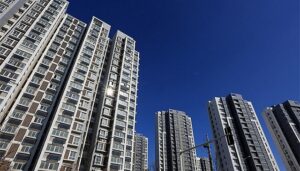>>REAL-TIME UPDATES IN THE WIRE. CLICK HERE<<<
Two major Chinese cities removed all home purchase restrictions to shore up the sluggish real estate markets, bolstering expectation that other big cities will follow suit.
Hangzhou, capital of east China’s Zhejiang province, and Xi’an, capital of northwest China’s Shaanxi province, will no longer review the eligibility of home buyers, according to to separate documents released by the two cities’ housing authorities on Thursday, removing the requirements previously imposed to curb housing market speculation.
Hangzhou, a city of 12.5 million people, is home to technology majors including Alibaba Group and NetEase.It has been a magnet for tech talent from all over China. Hangzhou’s move came after the city on March 14 lifted restrictions on purchases of second-hand homes, with curbs on new home curbs remaining unchanged at the time.
Hangzhou will also optimize land supply in the areas with large housing supply and slow home sales, in order to promote a balance between housing supply and demand, the authority said.
Homebuyers who don’t own a home in the areas where they want to purchase homes or they only own one home in the areas which has already been listed for sale, are eligible for mortgage rates for first-time home buyers, according to the document.
Those who buy a home in the city will eligible to get a local household registration, or local Hukou, it said.
In Xi’an, the authority will allow private companies government-affiliated agencies and social entities to purchase second-hand and new homes and encourage them to lease or purchase second-hand homes to be used as staff dormitories, home-style hotels and lodging houses, in a move to revitalize unused housing resources, according to the document.
Chinese authorities have been ramping up measures to prop up the beleaguered real estate sector, but many of the policies have been piecemeal in nature or have only a limited, short-term impact.
In Hangzhou, new home prices edged up 1% in March from a year earlier, marking the slowest pace in nearly six years, according to the data from the National Bureau of Statistics. In April, the city’s new home sales stood at 310,000 square metres, slumping 75% year-on-year, a survey from real estate firm CRIC showed.
On April 30, the Politburo, the top decision-making body of the Communist Party called for measures to support the property sector, saying it would improve policies to clear mounting housing inventories. Hangzhou is the first city to completely abolish purchase restrictions after that meeting.
The city’s decision will be “very inspiring” for other cities that still have curbs, and a wave of cities will see unprecedentedly large-scale policy easing starting in May, said Yan Yuejin, director at E-house China Research and Development Institute, a private real estate service provider.
Currently, only southern Hainan province, the northern city of Tianjin, the southern cities of Zhuhai and Hengqin, and China’s four biggest cities – Beijing, Shanghai, Guangzhou and Shenzhen – are still enforcing purchase restrictions.
“Except for the biggest cities of Beijing and Shanghai, easing the purchase restrictions in other cities are only symbolic,” said Zhang Dawei, analyst at Centaline Property
“What really affects demand is that people expect house prices to fall, there is no investment value, and they can’t make money, so few would buy property whether or not there are purchase restrictions,” he said.

